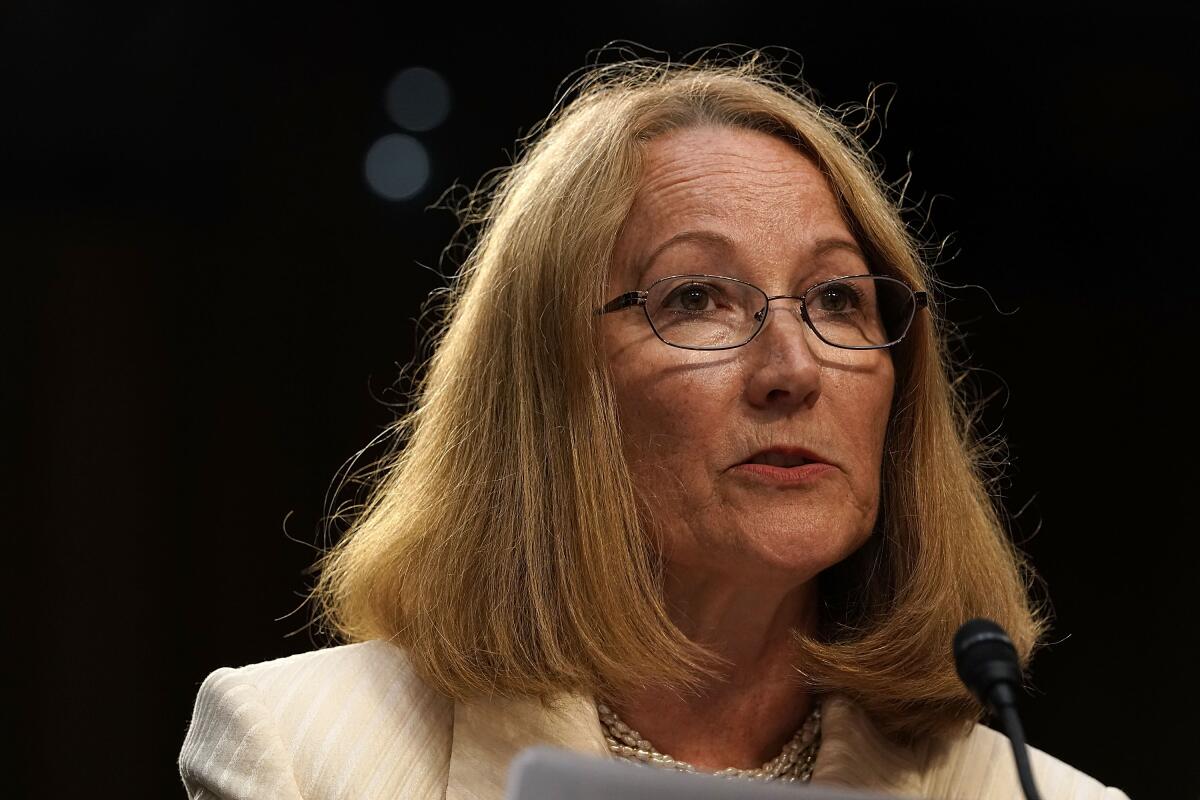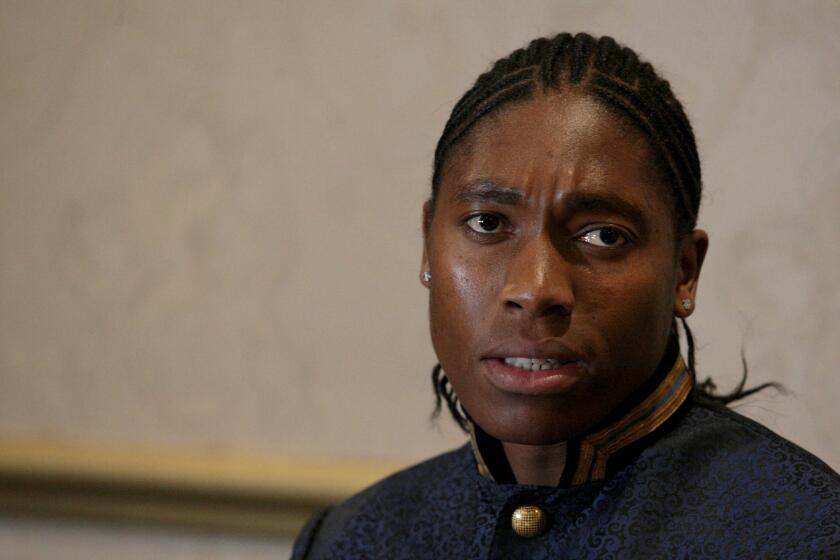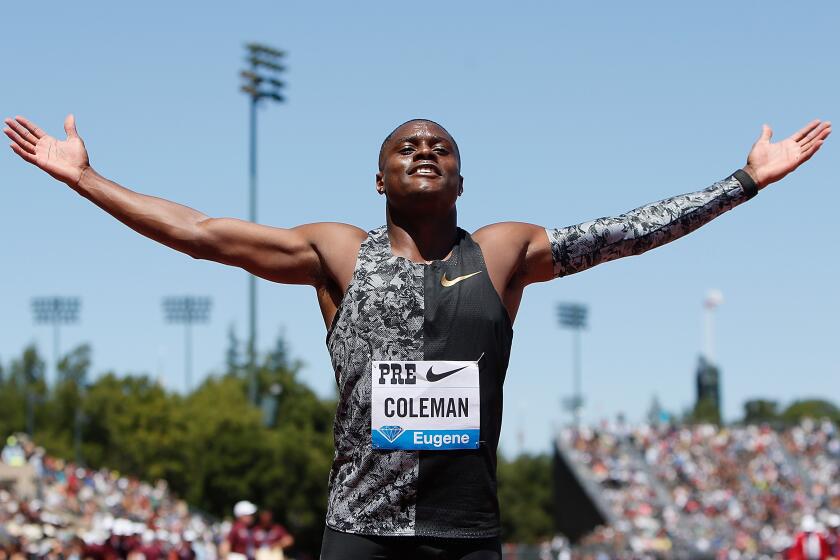U.S. Olympic leaders promise reform plan in the wake of sex abuse scandals

- Share via
Under growing pressure from critics and the government, leaders of the U.S. Olympic & Paralympic Committee announced Friday they will launch a five-year plan to reform the way the organization goes about its work.
The USOPC has faced withering scrutiny in the three years since the Larry Nassar scandal, which raised questions about its failure to protect young athletes from sex abuse in sports such as gymnastics and swimming.
There have been complaints about a culture focused on winning Olympic medals at the expense of athlete well-being.
“I would say we’ve had quite a lot of outsiders who have helped us look at the root causes of issues,” said Susanne Lyons, the USOPC chairwoman. “I think we’ve had some very good help and advice, including from critics.”
The U.S. Justice Department is investigating not only the USOPC, but also several national governing bodies — USA Gymnastics, USA Swimming and USA Taekwondo — that oversee individual sports, the Wall Street Journal reported last week. The attorneys general in Indiana and California have also reportedly opened investigations.
The cases involve both handling of sex abuse allegations and potential financial misconduct throughout the Olympic sports system.
South African runner Caster Semenya announced that she has signed with a women’s soccer team, but made it clear she is not giving up on track and field.
“Every instance related to potential or actual abuse of athletes warrants thorough investigation,” USOPC spokesman Mark Jones said. “We have cooperated with all government inquires and will continue to do so.”
With the 2020 Summer Games in Tokyo less than a year away, this would normally be a time for discussing Olympic preparations. But much of the spotlight shifted to governance this week as the USOPC gathered at its headquarters in Colorado Springs, Colo., for an annual assembly and quarterly board meeting.
“It’s not about the hardware. It’s not about the medals,” Lyons said. “It’s about the people who win those medals.”
USOPC Chief Executive Sarah Hirshland offered few details from the new plan, which is scheduled to debut by year’s end, but pointed to general areas of focus.
The organization, which has undergone significant leadership change, has already proposed new bylaws and vowed to give athletes more of a voice. It will continue to work at improving athlete safety while providing more in the way of medical and mental health benefits, Hirshland said.
There will also be increased scrutiny of the national governing bodies, a daunting task given that 50 summer and winter sports come under the USOPC umbrella.
Anti-doping authorities have dropped their case against Christian Coleman, but the top American sprinter wants a public apology.
It remains to be seen if any of this will satisfy Congress, which has introduced sweeping legislation to counteract what it calls the USOPC’s “lack of oversight, independence, and transparency.”
The bill from Senators Jerry Moran (R-Kan.) and Richard Blumenthal (D-Conn.) would give the federal government authority to dissolve the USOPC board and decertify the national governing bodies if sufficient changes are not made.
It would compel the USOPC to spend $20 million annually — about twice its current contribution — to support the U.S. Center for SafeSport, an independent organization that has struggled to find its footing since opening in 2017 to deal with sex abuse.
“It is clear there is an urgent need to establish better protections for athletes, strengthen Congressional oversight over the USOPC along with the national governing bodies, and amplify the voice of athletes,” Moran and Blumenthal said in a joint statement. “Survivors deserve justice and the systematic change our bipartisan bill would deliver.”
In announcing their coming plan, USOPC leaders characterized outside input as a positive.
“We listened, we heard,” Hirshland said. “And now we’re acting.”
More to Read
Go beyond the scoreboard
Get the latest on L.A.'s teams in the daily Sports Report newsletter.
You may occasionally receive promotional content from the Los Angeles Times.









